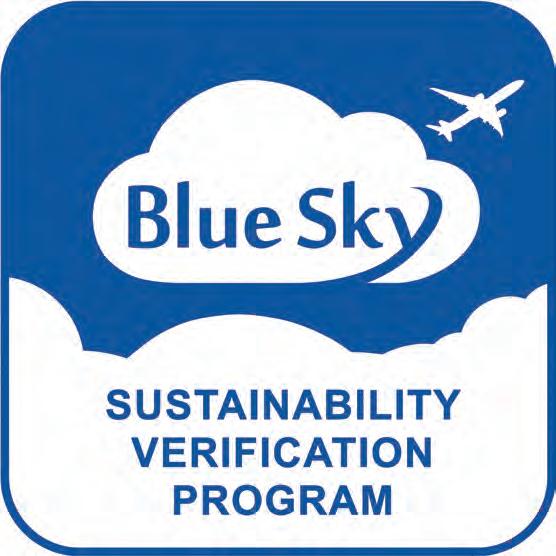




















































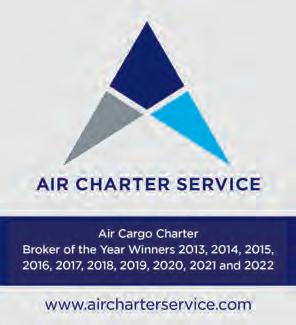
The International Air Transport Asso ciation (IATA) will be trialing a CO2 emissions calculation tool specifically developed for cargo flights together with Etihad Airways. To effectively man age and report on sustainability progress, the entire value chain – shippers, forwarders, inves tors and regulators – along with consumers are asking for reliable and trustworthy data calcula tions. This trial will provide a valuable proof of concept for the cargo component of the IATA CO2 Connect carbon calculator.
IATA has been successfully providing IATA CO2 Connect for passenger flights since June this year, with actual fuel burn data of 57 aircraft types rep resenting 98% of the active global passenger fleet. By using airline specific data on fuel burn and load factors, it is the most accurate in the market.
Calculating the carbon impact of cargo ship ments has more challenging parameters, not least of which is the unpredictability of routing at the time of booking an air cargo shipment that
can often include non-air segments. In addition, cargo can be carried on both dedicated freighter aircraft and in the bellies of passenger aircraft. To achieve equal levels of accuracy to the passenger calculator, it is essential to collect actual data on fuel burn, load factors and other key variables in trials.
IATA will be working with Etihad Cargo to track the necessary data for cargo shipments during a three-month trial. Etihad will be sharing data from flights and advising on various use cases to achieve the highest levels of accuracy, consisten cy and transparency.
By mid-2023 IATA aims to launch CO2 Connect for cargo providing the industry with precise and consistent methodologies for both passenger and cargo operations.

“With a strong commitment to innovation, Etihad Cargo actively seeks out and facilitates the development, trials and launch of promising solutions for its customers and partners. The air line’s development with IATA demonstrates the ability and willingness to co-create solutions to

support Etihad Cargo’s journey to achieving net zero carbon emissions by 2050 and demonstrates the carrier’s agility in adopting state-of-the-art technology and digital solutions. IATA’s CO2 Con nect carbon calculator will be an effective tool in making the transportation of cargo more sus tainable and will benefit not only Etihad Cargo’s customers but also the wider air cargo sector in the future” Martin Drew, senior vice president of global sales and cargo at Etihad Aviation Group, said.
“Aviation will achieve net zero carbon emissions by 2050. And our customers—travellers and ship pers—need accurate information on the emissions related to their activities to manage their own commitments and reporting obligations. For all these purposes, accurate data is critical. IATA CO2 Connect already provides this for passenger oper ations. This trial with Etihad will help us in bringing an industry-leading carbon calculator for cargo in the coming months,” Frederic Leger, IATA’s senior vice president for commercial products & services, said.
which cele
three years of disruptive

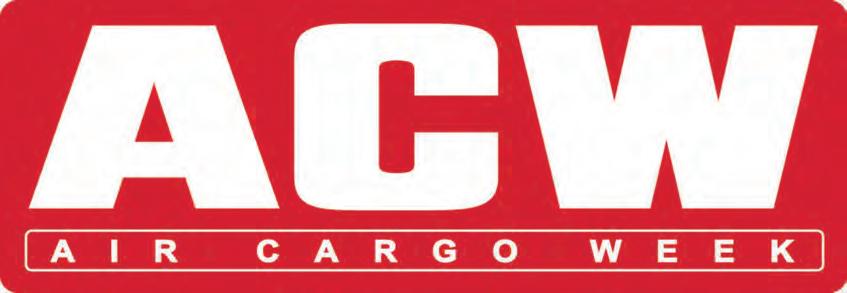
Flash has launched its new product line and an nounced partnerships with three top global clients to offer nGen and Octogo solutions
International Air
WORLDWIDE Flight Services has announced that SATS has reached an agreement to acquire it from an affiliate of Cerbe rus Capital Management for €2.25 billion (£2 billion).


The transaction will bring together WFS and SATS to create a first-of-its-kind global air cargo platform with scale and a net work of stations across Asia, the Americas, and Europe.
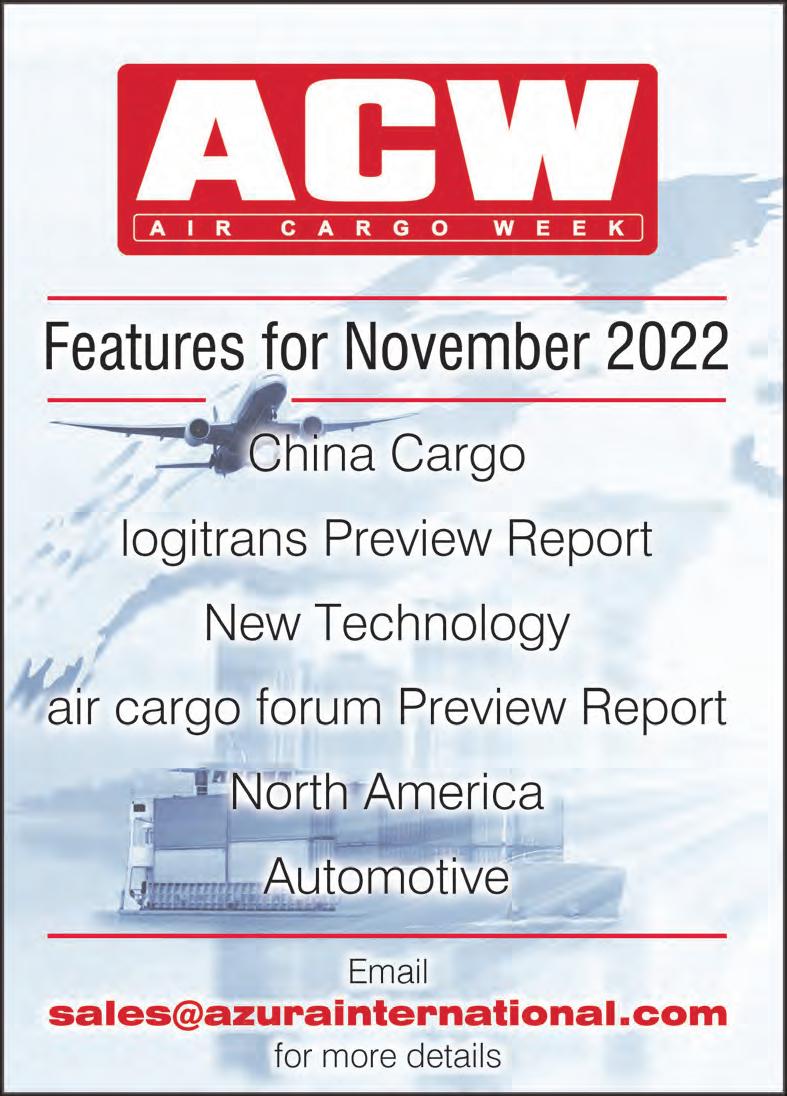
“WFS has become the leading global air cargo logistics provider thanks to our commitment to customers, our experi enced team, and our partners at Cerberus,” Craig Smyth, WFS CEO, said. “As we look to our next stage of growth, this combi nation will deliver exciting benefits for our customers and our people.”

“WFS is an industry leader because it has dedicated people and an unwavering commitment to customers. Our proposed acquisition is a transformational opportunity for SATS and will create a global leader and a go-to provider of mission critical aviation services. In our newly combined markets, SATS and WFS will be at the heart of global trade flows, operating in the world’s busiest airports and supporting the biggest compa nies,” Kerry Mok, SATS CEO, added.
Unilode Aviation Solutions has announced the extension of its ULD management part nership with Saudia Cargo until 2028.
Saudia Cargo has access to a fleet of 90 passenger and cargo wide-body aircraft and flies to 87 destinations. The passenger and cargo divisions awarded the supply and management of their 21,000-strong container and pallet fleet to Unilode in 2017, which created one of the largest ULD management partnerships in the industry.
“Unilode’s digital ULD management solu
tions make it possible to gain more insights and greater visibility throughout our net work and supply chain and continue to help us provide innovative and state-of-the-art solutions to our customers,” Teddy Zebitz, CEO of Saudia Cargo, said.
“[Saudia Cargo] are strategic customers in our portfolio and their continued trust in our people and services demonstrate the value that they place on our partnership and collaboration,” Ross Marino, CEO of Unilode, said.


CARGO Flash has launched its new product line and announced partnerships with three top global clients to offer nGen and Octogo solutions.
Jasraj Chug, co-founder and director of Cargo Flash InfoTech, took the opportuni ty of the global trade gathering at the IATA World Cargo Symposium (WCS) 2022 to an nounce the launch of the new product line “Octogo”.

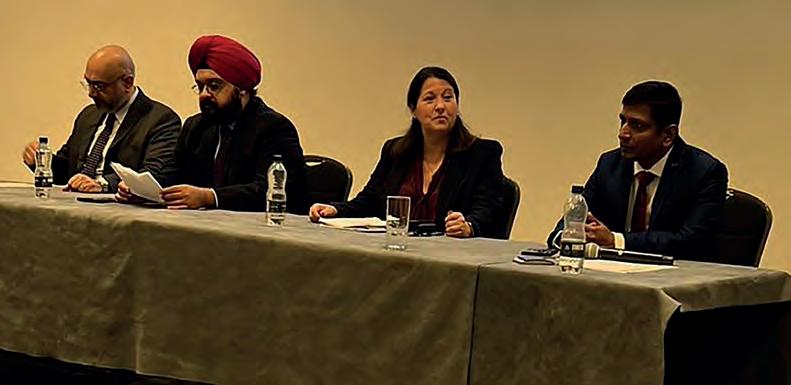
Chug, along with his team, recently host ed a workshop on ‘DIGIGASM- The emerging world of Air Cargo’ at the ExCel Centre Lon don. During the workshop, he spoke about the new product range and how it can bene fit the industry. The ‘Plug & Progress’ product lines of Octogo will define higher standards for the entire industry to make transactions transparent and customer-friendly.
“Octogo brings in a well-thought and care
fully-designed product line for the entire Air Cargo ecosystem. Our new and upcoming product lines are made to forecast rates, capacity, industry needs and demands trig gering the development of data-driven decisions,” Chug mentioned. “We endeavour to tap transactions, supporting the growth of a digital environment that can unfold new opportunities for our customers. It will soon be ready to provide direct access to millions of global air cargo and logistics stakeholders, all on a multi-faceted, cloud-based platform.” Cargo Flash has partnered with three new clients in recent months for providing IT support to their respective cargo man agement. The company joined hands with Kenya-based Jambojet Cargo, which is a sub sidiary of Kenya Airways, Oman-based LCC SalamAir and Royal Jordanian, the flagship carrier of Jordan.
E-CARGOWARE has announced that Astral Aviation has chosen the FR8Manage – Airline and FR8- Booking solution to further expand its digital footprint in the market.
“We are very pleased to work with e-Car goware and the selection was based on the user-friendly and intuitive FR8Manage – Air line to aid our company’s continuing growth,” Astral Aviation’s founder & CEO Sanjeev Gadhia said.
Sanjeev explains that “the key focus for Astral Aviation is to sustain our rapid growth and increase our digital footprint.

“We are piloting the system as of Sep tember 2022 with FR8Manage – Airline and FR8Booking and what better platform to announce it at than during the IATA World
Cargo Symposium (WCS) 2022”.
“We are very pleased with the applications and the support and proactive interaction we get from the e-Cargoware team. Ramesh Dar bha, co-founder and CEO and his team have showed us that e-Cargoware was the right choice for us and the perfect innovative solu tion provider and ideal software partner”.
“We are delighted to have been given the endorsement and trust from one of the most successful full freighter operations on the market today,” Darbha added.
“e-Cargoware is delighted to play a part in enabling Astral Aviation to realise its mission to be the leading cargo airline in Africa by of fering cost-effective, reliable, and efficient air freight solution.”
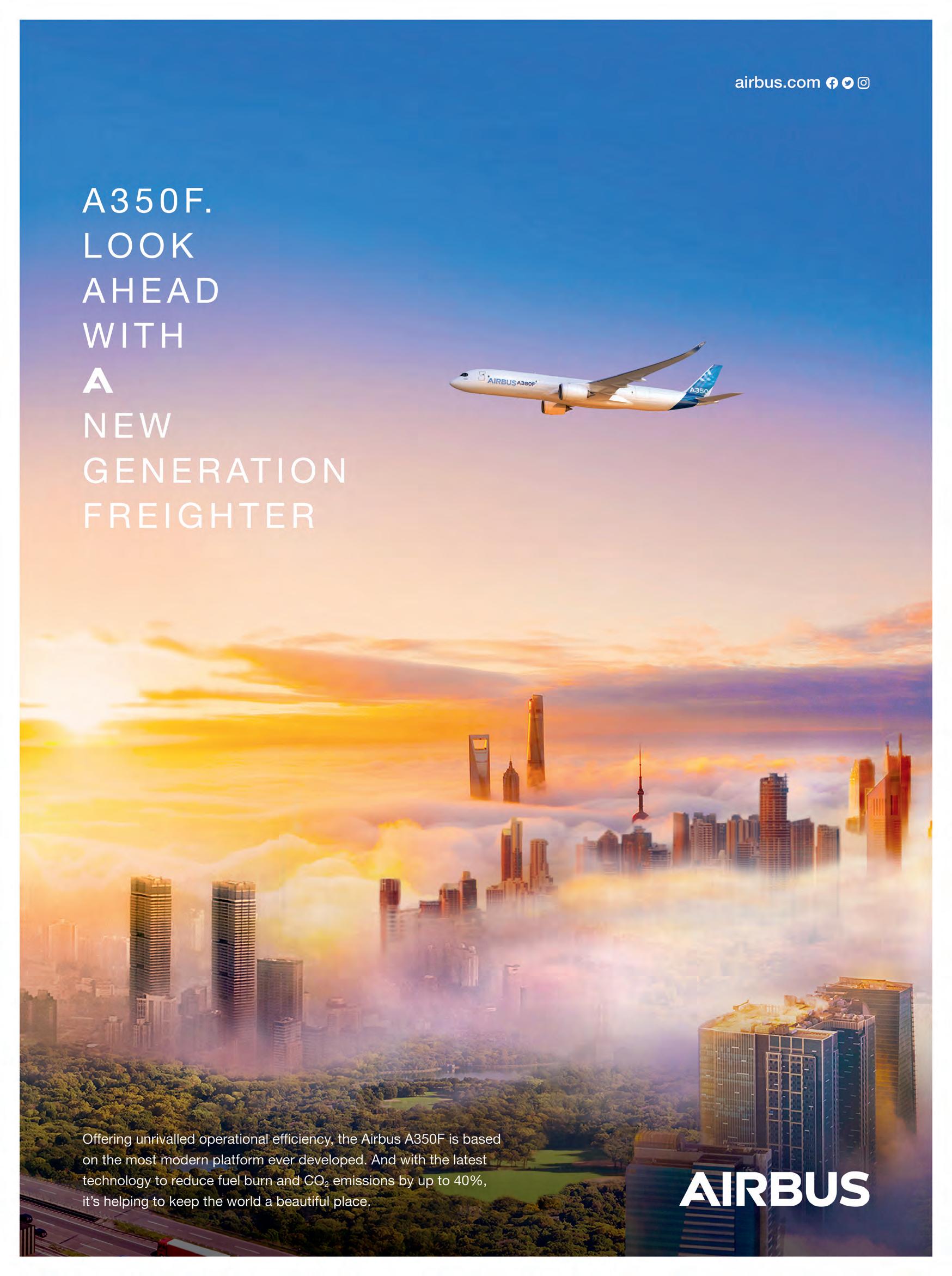
THE International Air Transport Association (IATA) highlighted four priorities to build resilience and strengthen air cargo’s post-pan demic prospects, as the 15th World Cargo Symposium gathered in London.

The priorities outlined included achieving net zero carbon emissions by 2050, continu ing to modernise processes, finding better solutions to safely carry lithium batteries and making air cargo attractive to new talent.
“Air cargo had a stellar year in 2021 achieving $204 billion in revenues. At present, however, social and economic challenges are mount ing. The war in Ukraine has disrupted supply chains, jet fuel prices are high and economic volatility has slowed GDP growth,” Brendan

Sullivan, IATA’s global head of cargo, said.
“Despite this, there are positive develop ments. e-commerce continues to grow, COVID restrictions are easing, and high-value spe cialised cargo products are proving resistant to economic ups-and-downs. Going forward, achieving our net zero commitment, mod ernising processes, finding better solutions to safely carry lithium batteries, and making air cargo attractive to new talent are critical.”
On the road to net zero, Sullivan was clear that “SAF is the key to achieving net zero emissions. Airlines used every drop that was available in 2021. And it will be the same this year. The challenge is SAF production capaci ty. The solution is government incentives.”
“The challenges of the COVID crisis gave us confidence that we can change and adapt fast. We need to use that confidence to get even closer to the expectations for modernisation that our customers have. And we need to be true to air cargo’s unique selling point and move even faster,” he added.

“People are the core of any improvement in what air cargo can deliver. Sadly, we saw thousands of jobs leave the industry during COVID-19, especially cargo handlers. We are
now competing for talent in a very tight job market. And when we do find the right and willing talent, training and longer-than-usual security clearance processes delay their entry into the workforce,” Sullivan said, discussing the problem of labour shortages.
IATA called for governments to accelerate clearance processes, including those for secu rity, as a short-term solution and longer term to do a better job of attracting, onboarding, and retaining talent”.

THE International Air Transport Association (IATA) and the International Trade Centre (ITC) have joined forces to improve access to global trade and air cargo supply chain information for businesses and air cargo professionals.
Through this agreement, ITC and IATA will cross-link their information offerings, including data, to expand access to stra tegic information for trade and cargo professionals.

Users of multiagency platform Global Trade Helpdesk can now also benefit from the IATA ONE source platform with informa tion on freight forwarders.
IATA TACT Online users will benefit from ITC’s Market Access Map and its information on temporary trade restrictions related to the Ukraine-Russia conflict and COVID-19 measures, as well as up-to-date information on market demand trends and market ac

EMIRATES SkyCargo and United Cargo have signed a Mem orandum of Understanding (MoU) that follows on the heels of the new broader historic commercial agreement between two of the largest global airlines. This coordination will deliver benefits to airfreight customers of both Emirates Skycargo and United Cargo around the world.
The MoU was signed at the 2022 World Cargo Symposium in London by Nabil Sultan, Emirates divisional senior vice presi dent, Cargo and Jan Krems, president of United Cargo.
Emirates SkyCargo and United Cargo will work closely on a number of aspects, which include expanding cargo interline options and blocked space agreements, pending regulatory approvals. This will build on existing cargo interline arrange ments between both air cargo operators and offer freight customers access to more capacity on a larger combined glob al network.
“Emirates SkyCargo is committed to being the leading player in the global air cargo industry providing our customers with the highest standards of products and services. Cooperat ing with United, who is a leading airline in its own right with strengths and a network that are complementary to our own, will allow us to add value for our customers,” said Nabil Sultan, Emirates divisional senior vice president of cargo, said.
“United is pleased to work with Emirates SkyCargo on this MoU. As one of the leading carriers worldwide, Emirates SkyCargo is an important player in the industry, and our supple mentary capabilities allow us to provide new service offerings to our customers worldwide. We share a common commitment to providing industry-leading solutions for our customers,” Jan Krems, president of United Cargo, said.
United Cargo will have access to Emirates SkyCargo’s high frequency distribution network through the belly-hold of pas senger flights to over 100 global destinations and 11 freighters, whilst Emirates SkyCargo will have access to over 200 cities in the US and 300 cities across five continents through United Cargo.
cess conditions through ITC’s Market Analysis tools.
“In challenging times of the “three C’s” –COVID, conflict and climate change – small businesses need to boost their resilience by adapting their business models and diversi fying market risks. Through our partnership with IATA, ITC is helping businesses to adapt to challenging economic conditions and cap italise on emerging opportunities which is key for supporting an inclusive global recovery,” Pamela Coke-Hamilton, executive director of the International Trade Centre, said.
“Air cargo facilitates global trade, but it is a tough business, and information is critical to success. Our partnership with ITC will help our many customers in the air cargo sector to have even better market insights on trade. And, as success brings growth, everybody will win with expanded trading opportunities,” Bren dan Sullivan, IATA’s global head of cargo, said.
The air charter business has been booming, with companies report ing impressive revenues following one of their busiest ever seasons. Air Charter Service (ACS) was one of the charter brokers that has benefitted from the rise in demand for their services, as cargo switched from sea to air and there was a con tinued lack of bellyhold capacity.
ACS secured record annual revenues of £1.3 billion in 2021, following strong growth and sales across all divisions, with that success carrying forward into 2022. The company’s Chinese offices in Beijing, Shanghai and Hong Kong in particular helped ACS to meet de mand, as it took advantage of the lack of availability and airfreight space to provide capacity for the sizeable amount of business coming out of the region.
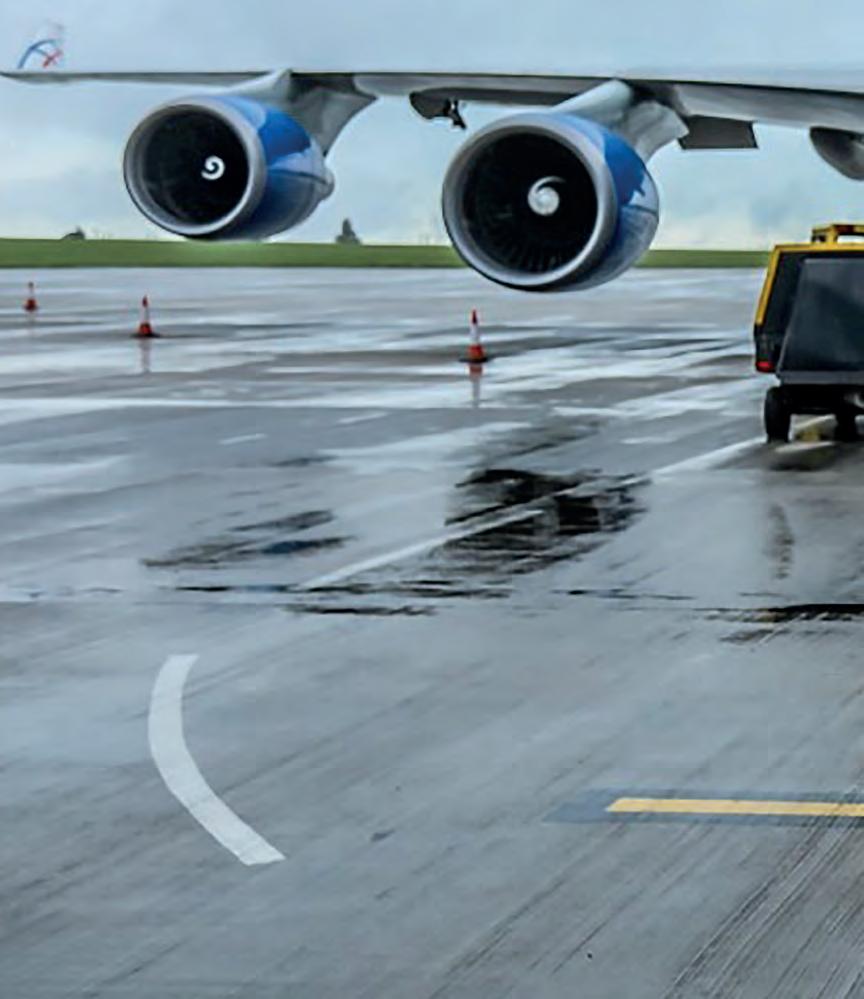
As the pandemic took hold and the air industry rapidly changed, charter brokers came front and centre, with passenger planes grounded and the e-commerce industry growing at a re markable pace. Whether transporting medical equipment or people’s packages, ACS played a crucial role in keeping global trade on track.

Rising to the moment, the company had scale on its side, as one of the most far-reach ing charter brokers in the industry. ACS is spread all over with places in Africa, Asia, Aus tralia, Europe, the Middle East, North America and South America.
“Scale is one Repetition thing that’s on our side…We are able to operate at quite a fast rate in terms of finding availability on the market, communicating with our colleagues, working between two offices with large freight porters that may be global as well. I think that’s the one thing with ACS: We’ve always worked on a very collaborative nature between our loca tions,” Dan Morgan-Evans, ACS’ head of cargo, said.

“For example, if we had flights out of China, we’ve got people based there. They can go to the airport, arrange trucking, the warehouse, speak the language,” he added, discussing the benefits of having teams on the ground globally.
“I think we had the upper hand in terms of being able to respond quickly. It wasn’t really a ramping up even for us. For the first couple of months, we were fixing every freighter that we could possibly get our hands on. Then we decided to just leverage our commercial jets department which spread all around the world, just like the cargo department.”
This return to normality in the air cargo mar ket has seen charter prices, which spiked to unprecedented levels over the past two years, come down to a more sustainable level. “The prices that were going on last Christmas were just unbelievably high and I think that we are certainly seeing a softening in rates.”
Russia’s invasion of Ukraine, rising fuel prices
haven’t helped the situation though, as it has kept costs higher than pre-pandemic for the whole industry. Although, looking ahead to next year, ACS expects costs to be a lot lower than last year as capacity frees up.
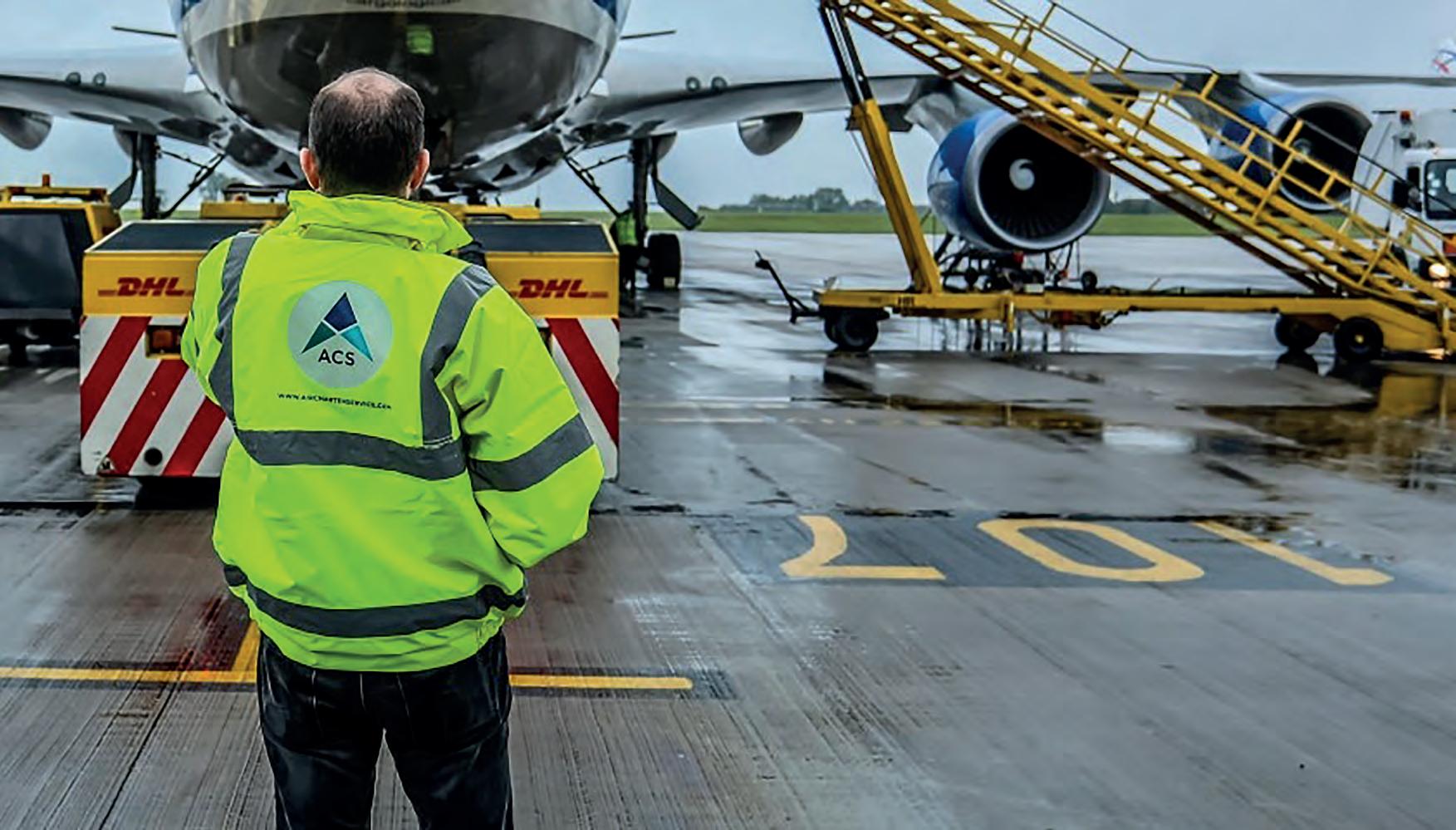
“Charter, especially with the prices coming down, is still very much on everyone’s radar, which has helped keep us going during these times. We’ve already got good forward bookings for October, November and December.”
While the global climate has calmed slightly in 2022, returning in parts of the world to a pre-pandemic situation, supply chain dis ruptions have continued with the war in Ukraine, lockdowns in Asia and businesses feeling the strain forcing companies to adapt to keep their operations running smoothly.
“The first quarter of this year and into the second quarter, there was still massively strong demand,” Morgan-Evans added. How ever, it wasn’t all positive, as restrictions in China caused a “bit of a headache” when ACS was forced to move flights planned out of Shanghai to other airports due to the local lockdowns.
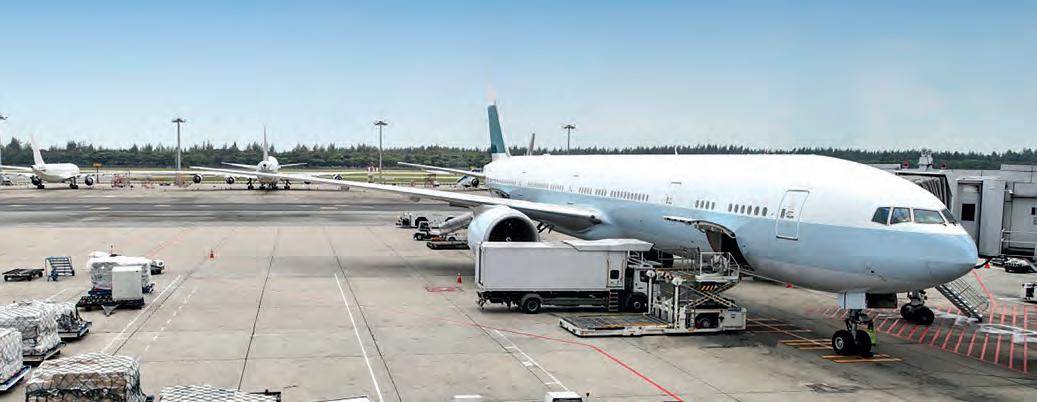
“It’s given us a bit of a breather in terms of the Covid demand dropping down but it’s still above pre-pandemic levels. Even in August, a traditionally quiet time, it was particularly busy with dou ble or even triple what we were doing in August pre-pandemic.”
As the world found itself in in crisis, ACS stepped up to transport medical equipment and provide humanitarian support where needed. Having experience quickly and effectively delivering aid to places that need it most, ACS regularly supports NGOs, govern ments and aid agencies, including in Ukraine, Haiti, Puerto Rico, Nepal and more.
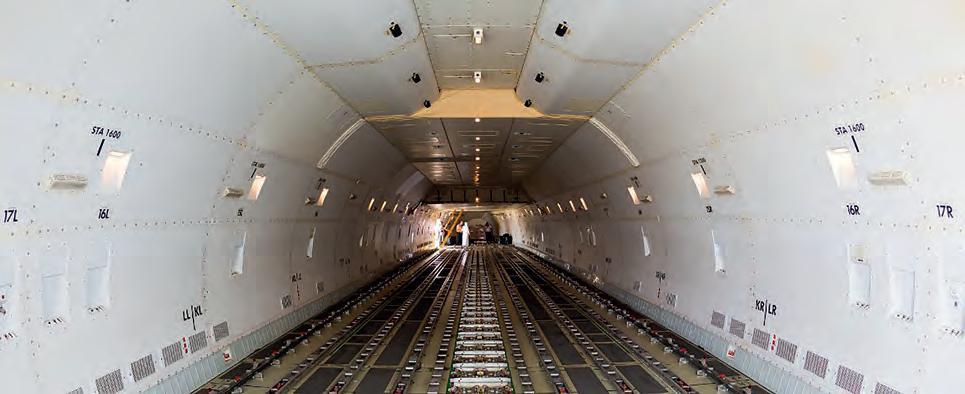
“30 years ago, this company was really founded on delivering humanitarian aid. Chris Leach was working in his basement on a fax machine and won some contracts with the UN. So, he feels
that that’s what helped begin this whole process,” Morgan-Evans said.
“It’s a big passion for him and that’s rubbed off on the rest of us. It’s one of those things that’s quite important and core to what we do. When the invasion of Ukraine happened, we have a lot of Ukrainian friends, colleagues, people that use airlines and we sent some staff down there to ferry stuff from the supermarket to ref ugee spots.
The future is bright ACS has been expanding in recent months, opening a new office in Brisbane and expanding operations in the UK with the office in Gatwick. More is to come in the next 12-24 months, as the market remains strong. “We know there’s a bigger market and having a presence on the ground will help us to secure more business from those markets,” Morgan-Evans stated.
For ACS, the company has a mixture of planned offices and op portunistic offices depending on what happens in the market but, as always, their plan remains trying to replicate their successful business model. “It’s definitely going to be a different airfreight market going into next year. I hope we’re certainly a stronger company than we were previously; the number of customers has increased, the experience of our brokers has massively increased.”
“In terms of where the market is going to be, that’s much harder to predict. If we’re in a global recession, it’s going to be a tough market…consumer demand and consumer confidence is going to be a big factor – how quickly and what steps governments take to curb inflation.”
“I think that we put in enough work during the last two years to mean that we will see a decent amount of business but it won’t be anything like it has been for the last two and a half years.”
“Charter, especially with the prices coming down, is still very much on everyone’s radar, which has helped keep us going during these times”
Poland’s new transport development programme is expected to serve tens of millions of passengers from 2028, integrating air, rail, and road networks to improve the flow of passenger traffic and cargo transport through the region. The new greenfield airport named Solidarity Airport, the construction of which was initiated by the Polish government will be strategically located in the centre of the country between the capital city of Warsaw and Poland’s third largest city, Łódź.
Boosting connectivity and ease of mobility
STH rail investments include a total of 2,000 kilometres of new lines, in particular highspeed railway lines, to be built by the end od 2034. The STH Rail Programme consists of a total of 12 railway lines, including 10 “spokes” connecting various regions of Poland with Warsaw and the Solidarity Airport. The new network is expected to provide access within a maximum of 2.5 hours from most major Polish cities to the new airport and the country’s capital. What is more important, the construction of the Solidarity Transport Hub will provide much more convenience, saving travelers’ time and money. Planning a trip abroad will no longer require hours of searching for connections or using transfer hubs in nearby countries. Instead of that, travelers will be able to reach such destinations as Australia, South America or Africa directly from the center of Poland via an airport that will be connected by high-speed railway network to provinces and cities across the country. By 2060, the Solidarity Transport Hub is about to attract ca. 850 million additional passengers, according to air traffic forecasts by the International Air Transport Association (IATA). It is expected to reach 40 million passengers in 2035, 50 million in 2044 and 65 million in 2060.
Planning and preparatory work for the implementation of this largest infrastructure investment in Poland for over 70 years began in 2017. In the first half of this year alone, the investor’s variant of the Solidarity Airport was presented, along with the accompanying infrastructure. More than a dozen months ago the STH company has launched hydrogeological studies (drilling, water and soil sampling, laboratory tests) at the airport construction area. At the same time, the nature inventory was completed and the nature inventory report was finalised. Contractors have also been selected in the tender for preparatory/construction work at the airport construction site, and a number of other key tenders have been announced..
To respond to ahead needs, the STH company announced, among others, preliminary market consultations for the implementation of con struction works for railway investments. Now, the STH company conducts preparatory works (e.g., feasibility studies) at 1300 km out of 2000 km new railway lines. The whole railway part of the STH project should be completed by 2034.
Even though the Solidarity Transport Hub is dedicated to civil aviation, the investment has been recognised by former commander of US ground forces in Europe General Ben Hodges for capability and capacity that “no other transport hub in Poland or elsewhere in Eastern Europe can match”. This allows to increase the security of the region by providing it with the appropriate transport capabilities to enable the smooth and efficient transfer of military units, equipment, goods, or humanitarian aid when needed. A significant advantage of STH, compared with other similar projects, is the intermodality and excellent connection of the airport with every part of the country and key European destinations.
Despite its “civilian nature”, STH is also of significant importance from the point of view of our country’s and Europe’s defence. Of course, it will not be a military base, but nevertheless an extremely important part of NATO’s eastern flank – If only because of significant increase of military mobility,” said Minister Marcin Horała Government Plenipotentiary for the Solidarity Transport Hub.
Currently, air cargo usually arrives in Poland by landing and taking off from airports in nearby countries before making the final journey to the country by road. This means that goods reach Poland in the least eco-friendly way and customers are paying more for goods due to increased transport costs. The construction of STH will solve these problems, reducing the negative impact of transportation on the environment and reducing costs for domestic consumers.
IATA forecasts that the Solidarity Airport could gain up to 20% of market share in Central and Eastern Europe in the short term. Without it, Poland risked missing out on 35 million tonnes of cargo by 2060. Instead, it has a potential to become one of the largest cargo hubs in the region, handling 1.76 tonnes per year by 2060, according to IATA.
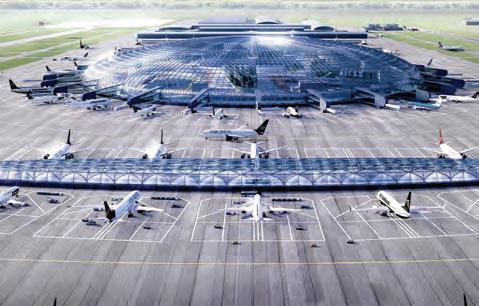

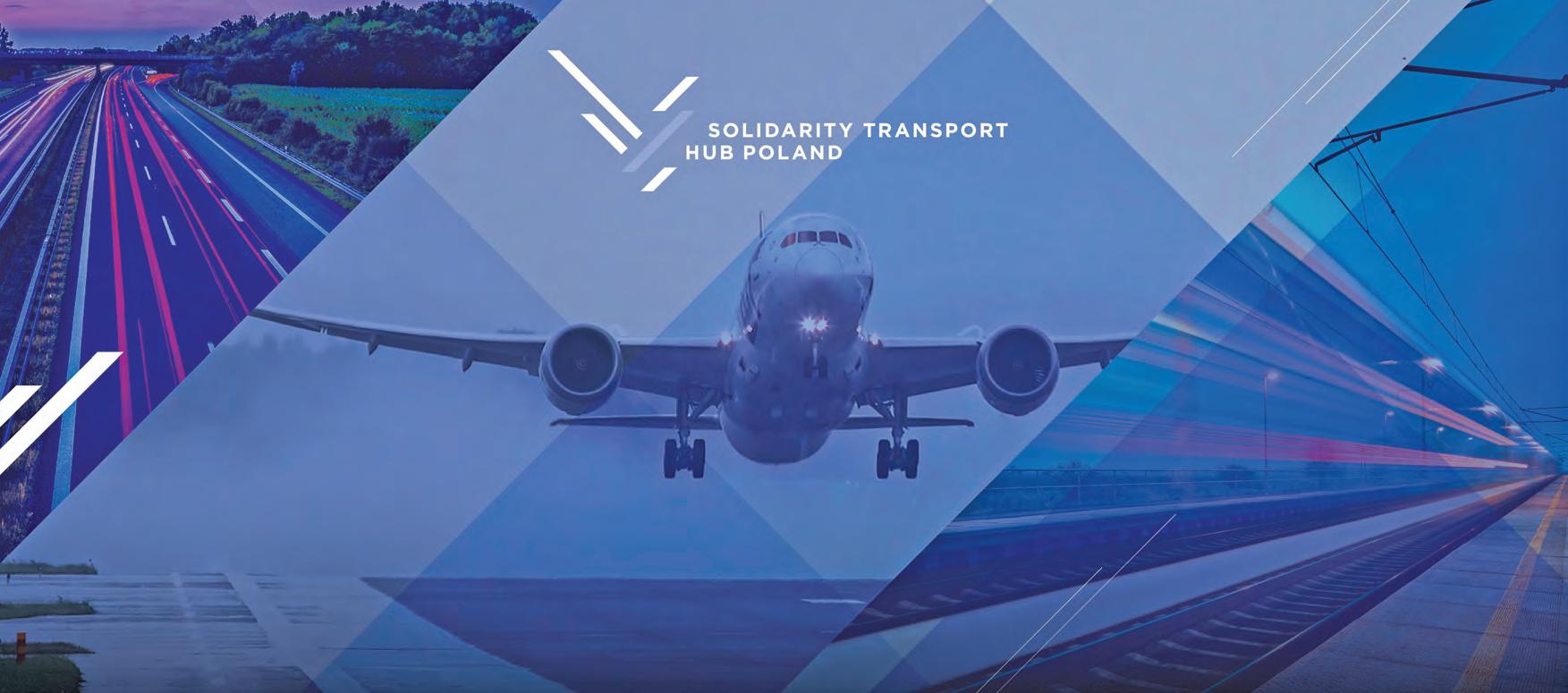
At the beginning of the summer vacations, representatives of the boards of RB Rail AS and STH met in Riga to discuss the possibilities and forms of cooperation. As a result, the both parties signed an agreement aimed at coordinating of plans, activities, and the exchanging of expertise.
Rail Baltica is a greenfield rail transport infrastructure project aimed at integrating the Baltic countries with the rest of the European rail network. It foresees the construction of a new 870 kilometre-long electrified double-track railway line through the three Baltic countries and connecting it to Poland and Finland. The width of the new railroad line will be 1435 mm (standard European gauge) and its route includes: TallinnParnava - Riga - Panevėžys - Kaunas, the Polish-Lithuanian border, and the KaunasVilnius connection.
“The countries of the Central and Eastern European region can bring unique value to the entire EU. The Solidarity Transport Hub iscommitted to developing a common railway network for our region. Signed agreement is a major step towards cross-border integration leading better connections and greater cohesion”- said Mikołaj Wild, CEO of STH.
The International Air Cargo Association (TIACA), which is preparing to welcome attendees to the air cargo forum Miami and transport logistics Americas in November, has announced the pioneering launch customers for the air cargo industry’s first multi-sec tor sustainability verification programme.

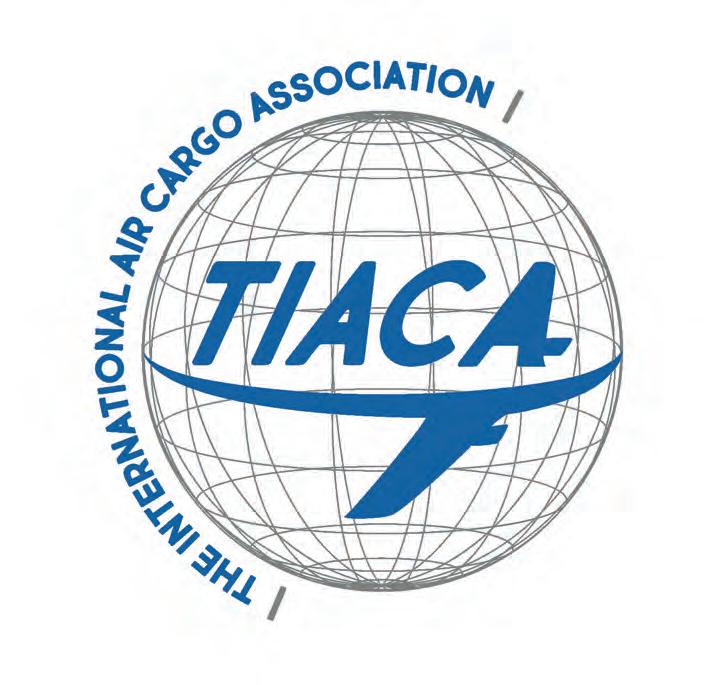

Following the announcement of the launch of the BlueSky Program at the March Executive Summit, a successful pilot pro gramme was run with airline and ground handling companies.
The TIACA BlueSky Verification Program, open to the entire industry, not just TIACA members, is now ready to launch live operations with the first wave of participants representing or ganisations from the airline, airport, freight forwarder, ground handler and GSSA sectors.
The TIACA BlueSky launch participants include Amsterdam Airport Schiphol, Astral Aviation, Brussels Airport, CHI (Cargo Handling International), Edmonton International Airport, Eti had Cargo, Flexport, HACTL (Hong Kong Air Cargo Terminals Limited), Strike Aviation and Swissport.
“We are very pleased to see such strong launch support from some world class innovative organisations. This programme will enable all participants to assess where they are on their sustainability transformation journey which will collectively demonstrate the leadership of the air cargo industry in tackling this important topic.” Steven Polmans, TIACA’s chair, said.
Phase 1 of the programme is an evidence-based desktop verification process designed to assess the applicants’ progress against a number of critical sustainability criteria.
The eight areas of assessment criteria include; decarboni sation, waste elimination, biodiversity protection, support for local economies and communities, impact on society improve ment, efficiency and profitability, employee engagement, retention and development and partnership building.
The assessment process is tailored to each industry sector to ensure peer assessments and progress tracking provide maximised value. Upon completion of the assessment by an independent organisation the participants receive a person alised dashboard highlighting where they currently are against
the assessed criteria. A subsequent phase will include a full on site audit option with an in-depth report describing areas of improvement.
“Sustainability is an increasingly important topic for busi nesses globally and as an industry which connects the world it is critical that we all have strategic plans in place to ensure our sustainability credentials are demonstrated in an evidenced and neutral fashion. The TIACA BlueSky Verification Program aims to provide that solution. We are excited to see the pro gramme launch and invite all industry stakeholders to take a look,” Glyn Hughes, TIACA’s director general stated.
The BlueSky Verification Program is a tool that the entire air cargo industry can use to track their sustainability progress, benchmark against peers and accelerate the industry transfor mation. It seeks to benefit not just the individual companies, but future partners and the air cargo industry at large by pro viding a common vision, transparency and a mechanism to demonstrate how businesses can grow responsibly as well as an improved image of the air cargo industry.
